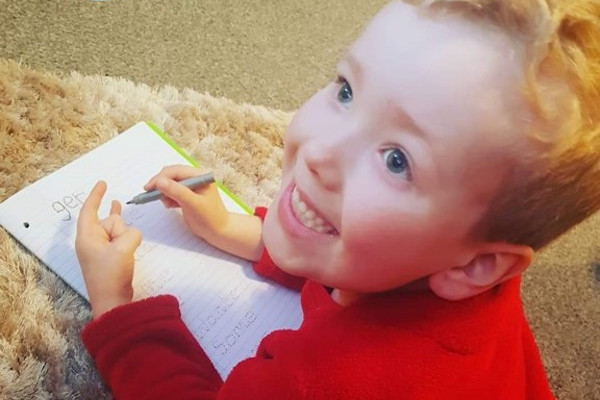
Updated on 28 February to include details of improvement notice issued to council
Social worker shortages in Solihull have meant children referred to local safeguarding services face long delays, with some waiting a month to be assessed, a multi-agency inspection triggered by the Arthur Labinjo-Hughes case has found.
The joint targeted area inspection (JTAI), carried out in January, found a “significant number” of children in need of help and protection in Solihull were waiting too long for their initial needs and risk to be assessed.
Its report, published today, also criticised Solihull’s safeguarding agencies for lacking “a cohesive approach to structuring and resourcing” the multi-agency safeguarding hub (MASH).
The JTAI said Solihull’s local safeguarding children partnership (LSCP) did not have a “clear understanding of the effectiveness” of the MASH. At the time of the inspection, “there was not sufficient social work capacity in the MASH to deal effectively with presenting need”, it added.
It said the number of health and police partners in Solihull’s MASH also remained “insufficient” to deal with demand, fuelling “drift and delay” in decision making to reduce risk for children.
The Department for Education has asked Solihull’s government-appointed adviser, Gladys Rhodes-White, to agree with partners how it will make the improvements highlighted by the JTAI and report back to it every six weeks.
Ministers have asked the LSCP for sight of its improvement plan and are considering what further support they can provide to the partnership.
Arthur case compounds ‘systemic’ recruitment challenges
The government commissioned the JTAI, alongside a broader national review into Arthur’s case, in December, when the six-year-old’s stepmother was convicted of his murder and his father was convicted of manslaughter.
During the trial it emerged that social workers had seen Arthur twice, but identified no safeguarding concerns, in the weeks before his death in June 2020, as the first Covid-19 lockdown was coming to an end.
The JTAI report noted that the coronavirus pandemic had placed “additional demands and pressures on the MASH”, but said the issues the inspection had identified were “long term and systemic”. It warned that decision making within the MASH was, for a “significant minority” of children, over-optimistic and lacking in professional curiosity.
“The current MASH workforce is committed and knowledgeable and dedicated to meeting the needs of children,” the report said. “However, staff face immense pressure to meet the daily demand, and this reduces their ability to respond swiftly to all concerns for children.”
The local authority had faced longstanding difficulties in ensuring there were enough social workers in the MASH, with attempts to improve this during 2021 having only limited impact, the JTAI found. It added that safeguarding concerns raised by Arthur’s case, which caused national outcry, compounded problems as they “made social workers highly reluctant to work in Solihull either on a permanent or agency basis”.
Solihull council had since, in partnership with the DfE, arranged for additional teams of agency social workers to join the MASH from the end of last month, the inspection report said. “It is imperative that this capacity be provided and sustained,” it added.
Learning from serious incidents ‘not shared effectively’
The JTAI report instructed leaders of the LSCP to “take urgent action” to understand and identify the initial needs and risks of children presenting to Solihull’s front door services, including ensuring that there is sufficient multi-agency capacity within the MASH to meet children’s needs promptly.
It also said child protection investigations needed to be improved, with not all agencies being invited to or engaging with strategy meetings or other information-sharing forums.
The report said the LSCP must ensure practice, and its impact for children involved with the MASH, was robustly audited. It added that the right agencies must be represented in all the LSCP’s activities and that the partnership must have sufficient resources to carry out its statutory functions.
Related reading
Chief social workers and Zahawi condemn abuse of practitioners in wake of Arthur murder
The report noted that in 2021 the LSCP had appointed an independent scrutineer, demonstrating its “willingness to listen to challenge”. But it said that until recently this had not been focused enough on the work of the MASH.
Elsewhere, the JTAI investigation found that learning from significant incidents, including from Arthur’s death, was “not shared effectively” with the local workforce by the partnership.
“The LSCP partners completed a rapid review [following Arthur’s murder] in July 2020,” it said. “Some learning points were identified; however, this was not a comprehensive list of learning points that were present in the information available at that time.”
LCSP: ‘We are making improvements’
The LCSP’s independent scrutineer, Steve Cullen, said the JTAI report made it clear that “there are areas that need to improve”.
“The partnership needs to better understand the lived experiences of children in Solihull and individual organisations need to make improvements to the way that they respond to children – we haven’t waited until the report to do this, work has already begun,” he said.
Cullen said the council had created a multi-agency improvement board with an independent chair to support, oversee and challenge partner organisations with responsibility for safeguarding children on their progress in making the necessary improvements.
He said that staff in Solihull were under immense pressure and all the safeguarding partners had worked together to increase the number of staff working within the MASH.
“On behalf of the safeguarding partners I want to provide assurance that we have taken on board all of the comments from the inspectors and we committed to work together to improve the way we protect children in Solihull and to do everything we can to ensure positive outcomes for our children and young people,” he said.
Solihull council leader Ian Courts said the authority recognised there were areas for improvement and had already increased its number of social workers.
“The new improvement board will support, oversee, and, importantly, challenge partner organisations with responsibility for safeguarding children, on their progress in delivering an updated improvement plan,” he said.
“We have recruited an independent chair, Penny Thompson CBE, to begin the work of improving safeguarding in the borough without fear or favour. This means we can get on with improving our safeguarding practices and respond to the JTAI recommendations.”
Council ‘must improve’ by end of year
The Department for Education issued an improvement notice to the council following the JTAI report, instructing it to work with Rhodes-White to formulate a written statement of proposed action by 30 May and to deliver on these improvements by 31 December 2022.
“Should the council be unwilling or unable to comply with this improvement notice, or should ministers not be satisfied with the council’s progress at any stage, ministers may choose to invoke their statutory powers of intervention to direct the council to enter into an appropriate arrangement to secure the improvements required in children’s services,” it warned.
Police told to improve information system
The JTAI criticised other agencies involved in safeguarding children in Solihull, particularly West Midlands Police, which it said needed to take urgent action to improve the quality of information held on its ‘Connect’ crime records management system.
It said the police must make sure the links to connected individuals were present and accurate, and reduce multiple records held against the same person, so that risk to children can be clearly seen, recognised and shared when appropriate.
West Midlands Police said in response that its Connect system was introduced in April 2021, after Arthur’s death, to enable it to combine multiple information management systems into one in an effort to improve how it managed data.
“Since then work has continued to improve our ability to bring relevant information together and enhance the quality and management of information available to help us identify and manage risks more accurately and improve our ability to prevent and investigate crime,” the force said in a statement.
Children’s minister Will Quince, care minister Gillian Keegan and safeguarding minister Rachel Maclean wrote in a joint statement that Arthur’s death served as a “daily reminder of the urgent need for all the agencies tasked with protecting vulnerable children to work together”.
“That’s why we commissioned this joint inspection of services in Solihull, which has identified two clear areas where priority action is needed,” they said.
“Each agency – police, health and children’s services – has an equal duty in this work and we are writing to all three to make clear our expectation that they participate fully in producing and delivering on a written statement of action.”
The national review into Arthur’s case – now also covering the learning from the murder of Star Hobson – is due to report in May.





 Bournemouth, Christchurch and Poole
Bournemouth, Christchurch and Poole  Hampshire County Council
Hampshire County Council  Lincolnshire County Council
Lincolnshire County Council  Norfolk County Council
Norfolk County Council  Northamptonshire Children’s Trust
Northamptonshire Children’s Trust  South Gloucestershire Council
South Gloucestershire Council  Wiltshire Council
Wiltshire Council  Wokingham Borough Council
Wokingham Borough Council  Children and young people with SEND are ‘valued and prioritised’ in Wiltshire, find inspectors
Children and young people with SEND are ‘valued and prioritised’ in Wiltshire, find inspectors  How specialist refugee teams benefit young people and social workers
How specialist refugee teams benefit young people and social workers  Podcast: returning to social work after becoming a first-time parent
Podcast: returning to social work after becoming a first-time parent  Podcast: would you work for an inadequate-rated service?
Podcast: would you work for an inadequate-rated service?  Family help: one local authority’s experience of the model
Family help: one local authority’s experience of the model  Workforce Insights – showcasing a selection of the sector’s top recruiters
Workforce Insights – showcasing a selection of the sector’s top recruiters 

 Facebook
Facebook X
X LinkedIn
LinkedIn Instagram
Instagram
So, Solihull council is short of Social Workers, but why is that a surprise for many, if not all councils are short of social workers for numerous reasons.
Insufficient numbers coming into the profession, experienced social workers leaving, extremely large workloads, insufficient management resources, lack of support for social workers, but one of the main reasons is the lack of finance.
None of the above is new for it has been so for many years, perhaps as long as there have been major safeguarding issues.
Much of this was made very much worse when Tory Governments started austerity measures on Local Authorities (LAs) supposedly to make LAs more efficient in cutting down on supposed areas of not using funding effectively. Well, in most organisation there are areas which could be improved, but no investigations were conducted into which areas these were and which LAs, as all council were subjected to the austerity cuts, some more than others. As there were very little saving to be made, the cuts resulted in cuts to services of which staffing costs were more than likely to be the highest expenditure. So cuts were made across the board of LA services. This meant that workloads increased for those workers still employed and where there were management cuts this resulted in less supervision.
In many of these areas this resulted in reductions not readily seen by persons others than those employed by the LAs. But when this came into areas, such as, Social care it soon became evident in reduced services to those in need of care, and this over time resulted in more safeguarding issues being evident.
This as we have seen eventually results in lack of care, causing in many instances loss of life.
Social workers are exhausted and being so, mistakes are made, when they should not be.
After every safeguarding issue multi agency meetings take place and every time it is said ‘lessons will be learnt’, but for that to occur every one needs to be open to learn, the system to be open so learning can take place and much more resources. But it is not just LAs who should be open to learn, but also Government and, unfortunately Governments are the biggest area of reluctance, for as well as learning, more finance is required. When, it comes to social care, finance is way short and I would say it has been since 1948 when the basis of todays social care system was created. Then, over the years the financial gap was ever increasing and, as I said earlier the gap was made so much more extensive due to the 10 years of austerity cuts and then the 2 years of COVID costs.
All of the above being said, it is always the social worker who is blamed and even with all the associated problems mentioned, the social worker is responsible for the immediate ‘Duty of Care’, but then blame needs to be apportioned, especially to the Government of the day, which I doubt is ever the case.
Unfortunately it is a case of the ‘3 Wise Monkeys, which currently is Boris, Rishi and Sajid.
Great response -totally true
Austerity-cuts more and more legislation
Social workers leaving in droves
No recognition of the work we do to protect children and families
It is relentless no respite
No placements
No specialist units
We cannot meet the needs and since lock down social worker running as fast as they can -Away !!